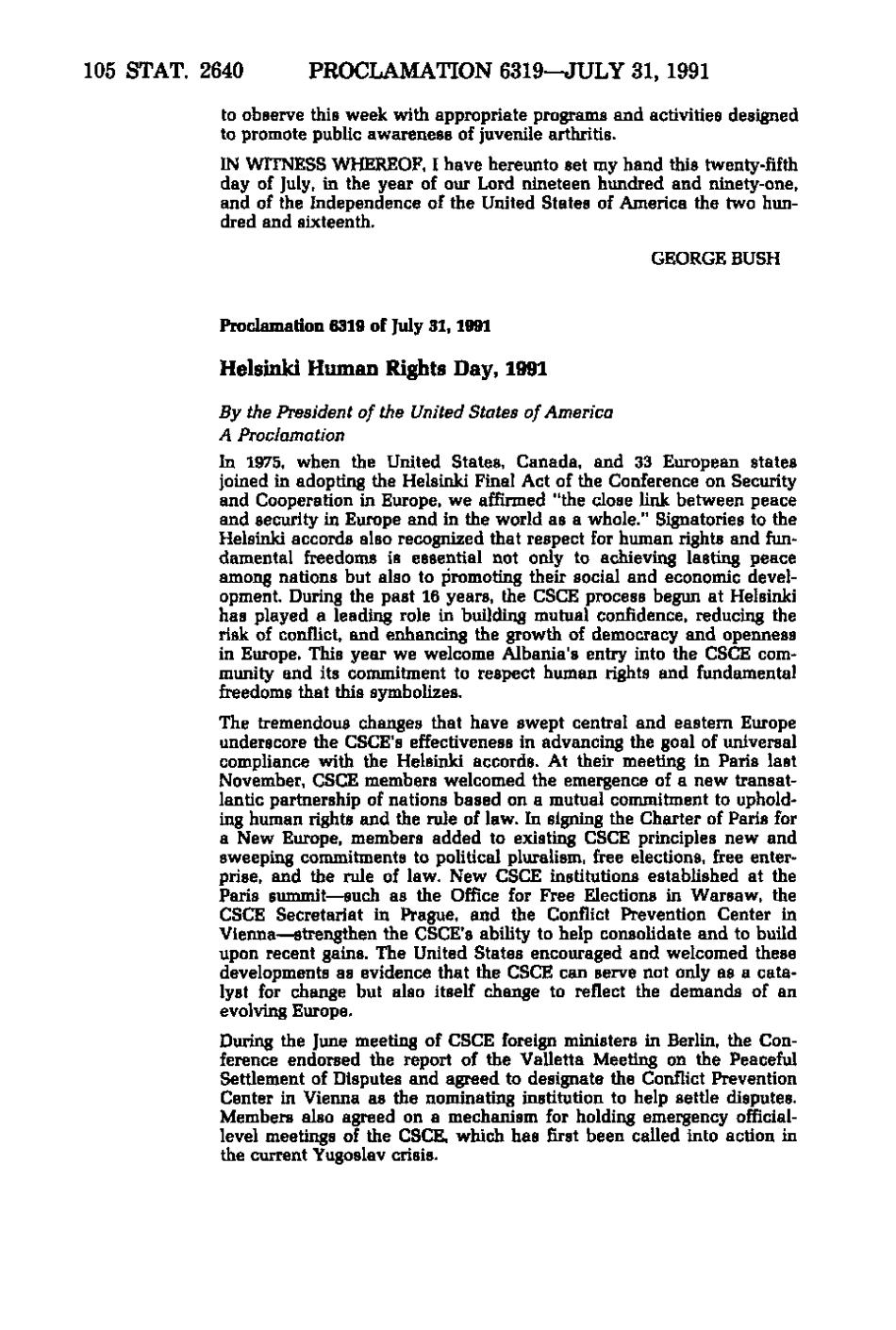105 STAT. 2640 PROCLAMATION 6319—JULY 31, 1991 to observe this week with appropriate programs and activities designed to promote public awareness of juvenile arthritis. IN WITNESS WHEREOF, I have hereimto set my hand this twenty-fifth day of July, in the year of our Lord nineteen hundred and ninety-one, and of the Independence of the United States of America the two hundred and sixteenth. GEORGE BUSH Proclamation 6319 of July 31, 1991 Helsinki Human Rights Day, 1991 By the President of the United States of America A Proclamation In 1975, when the United States, Canada, and 33 European states joined in adopting the Helsinki Final Act of the Conference on Security and Cooperation in Europe, we affirmed "the close link between peace and security in Europe and in the world as a whole." Signatories to the Helsinki accords also recognized that respect for human rights and fundamental freedoms is essential not only to achieving lasting peace among nations but also to promoting their social and economic development. During the past 16 years, the CSCE process begun at Helsinki has played a leading role in building mutual confidence, reducing the risk of conflict, and enhancing the growth of democracy and openness in Europe. This year we welcome Albania's entry into the CSCE community and its commitment to respect human rights and fundamental freedoms that this symbolizes. The tremendous changes that have swept central and eastern Eiu-ope underscore the CSCE's effectiveness in advancing the goal of universal compliance with the Helsinki accords. At their meeting in Paris last November, CSCE members welcomed the emergence of a new transatlantic partnership of nations based on a mutual commitment to upholding human rights and the rule of law. In signing the Charter of Paris for a New Europe, members added to existing CSCE principles new and sweeping commitments to political pluralism, free elections, free enterprise, and the rule of law. New CSCE institutions established at the Paris summit—such as the Office for Free Elections in Warsaw, the CSCE Secretariat in Prague, and the Conflict Prevention Center in Vienna—strengthen the CSCE's ability to help consolidate and to build upon recent gains. The United States encoiu'aged and welcomed these developments as evidence that the CSCE can serve not only as a catalyst for change but also itself change to reflect the demands of an evolving Europe. Dming the Jxme meeting of CSCE foreign ministers in Berlin, the Conference endorsed the report of the Valletta Meeting on the Peaceful Settlement of Disputes and agreed to designate the Conflict Prevention Center in Vienna as the nominating institution to help settle disputes. Members also agreed on a mechanism for holding emergency officiallevel meetings of the CSCE, which has first been called into action in the current Yugoslav crisis.
�
